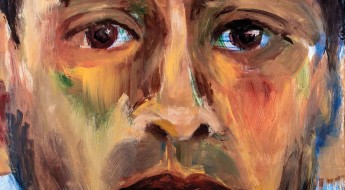Colombia: In 2022, the ICRC facilitated the release of 63 people held by armed groups
In 2022, 63 people were released by armed groups to the International Committee of the Red Cross (ICRC) – one of the highest numbers in recent years.
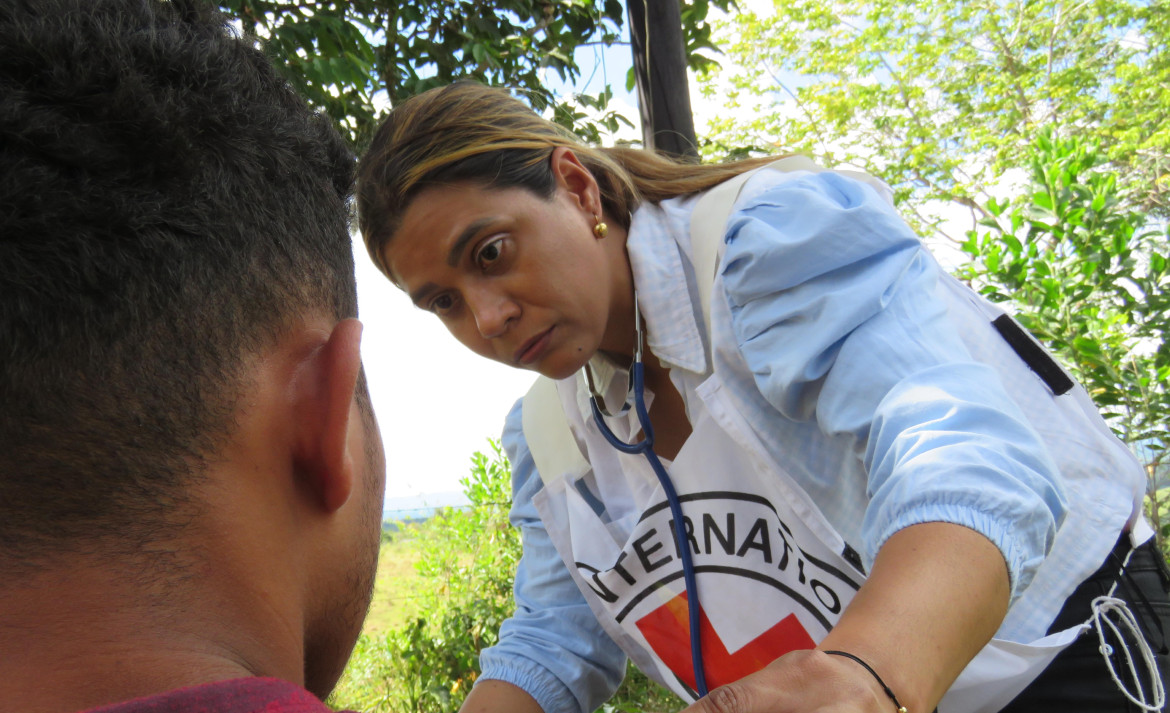 The ICRC's role as a neutral intermediary has enabled us to help countless people suffering the effects of armed conflict and other violence.Antioquia. An ICRC doctor treats a minor who had been held by the Gaitanist Self-Defence Forces of Colombia (AGC).Ricardo Monsalve / ICRC
The ICRC's role as a neutral intermediary has enabled us to help countless people suffering the effects of armed conflict and other violence.Antioquia. An ICRC doctor treats a minor who had been held by the Gaitanist Self-Defence Forces of Colombia (AGC).Ricardo Monsalve / ICRC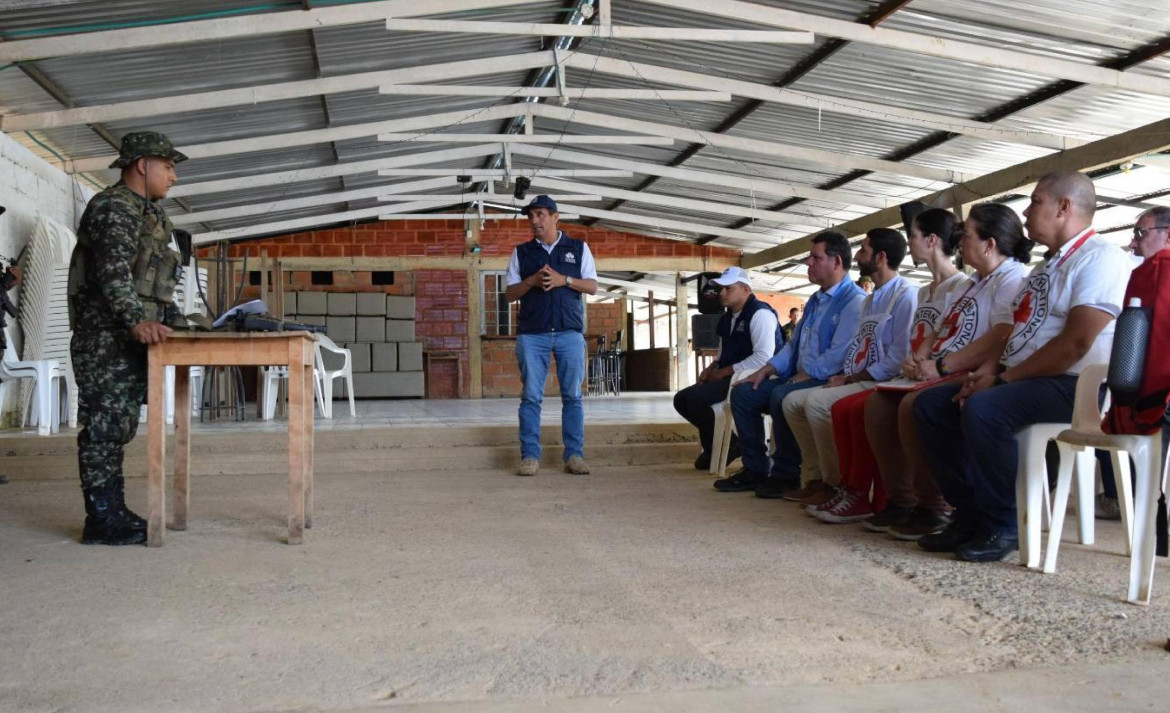 We are independent: we do not hold any religious or political ideology.Valle del Cauca. A person who had been held by the Jaime Martínez Front (formerly part of the FARC-EP and not currently covered by the peace agreement) is handed over to the ICRC, in the presence of the ombudsman’s office, the UN fact-finding mission and the community guard.Carolina Ávila / ICRC
We are independent: we do not hold any religious or political ideology.Valle del Cauca. A person who had been held by the Jaime Martínez Front (formerly part of the FARC-EP and not currently covered by the peace agreement) is handed over to the ICRC, in the presence of the ombudsman’s office, the UN fact-finding mission and the community guard.Carolina Ávila / ICRC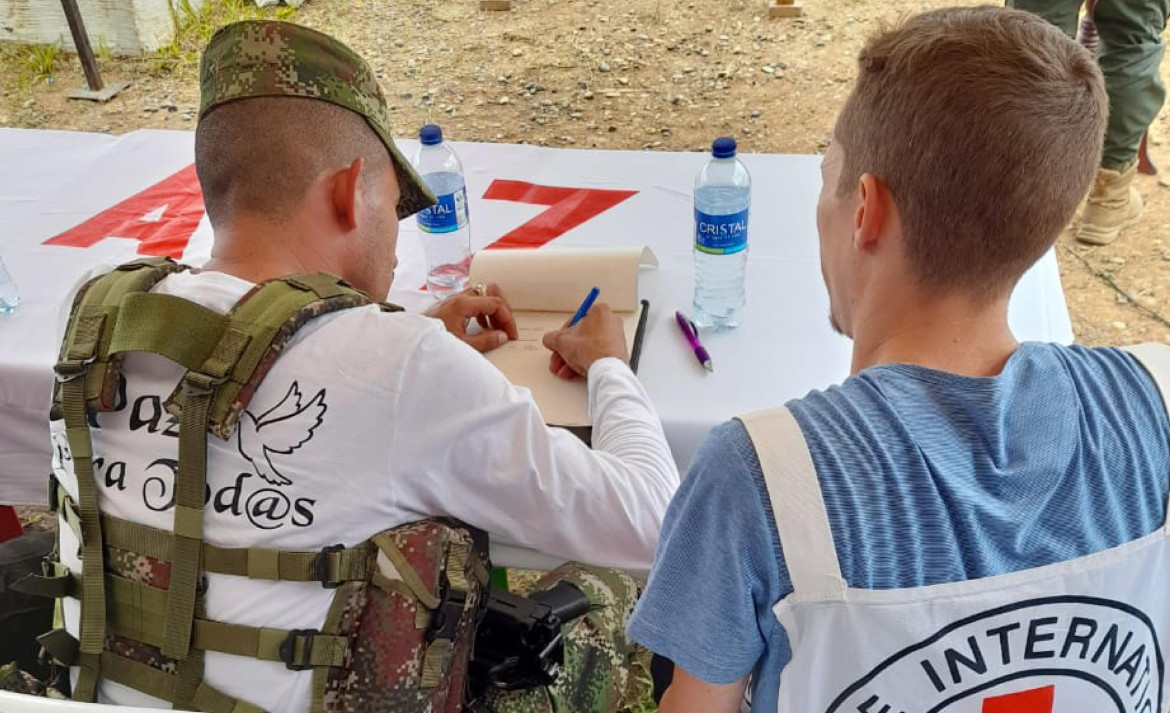 We maintain dialogue with all parties to the armed conflict to remind them that wars have limits.Nariño. On Saturday, 22 October 2022, 16 people were handed over to the ICRC by the Segunda Marquetalia, an armed group.Edgar Portilla / ICRC
We maintain dialogue with all parties to the armed conflict to remind them that wars have limits.Nariño. On Saturday, 22 October 2022, 16 people were handed over to the ICRC by the Segunda Marquetalia, an armed group.Edgar Portilla / ICRC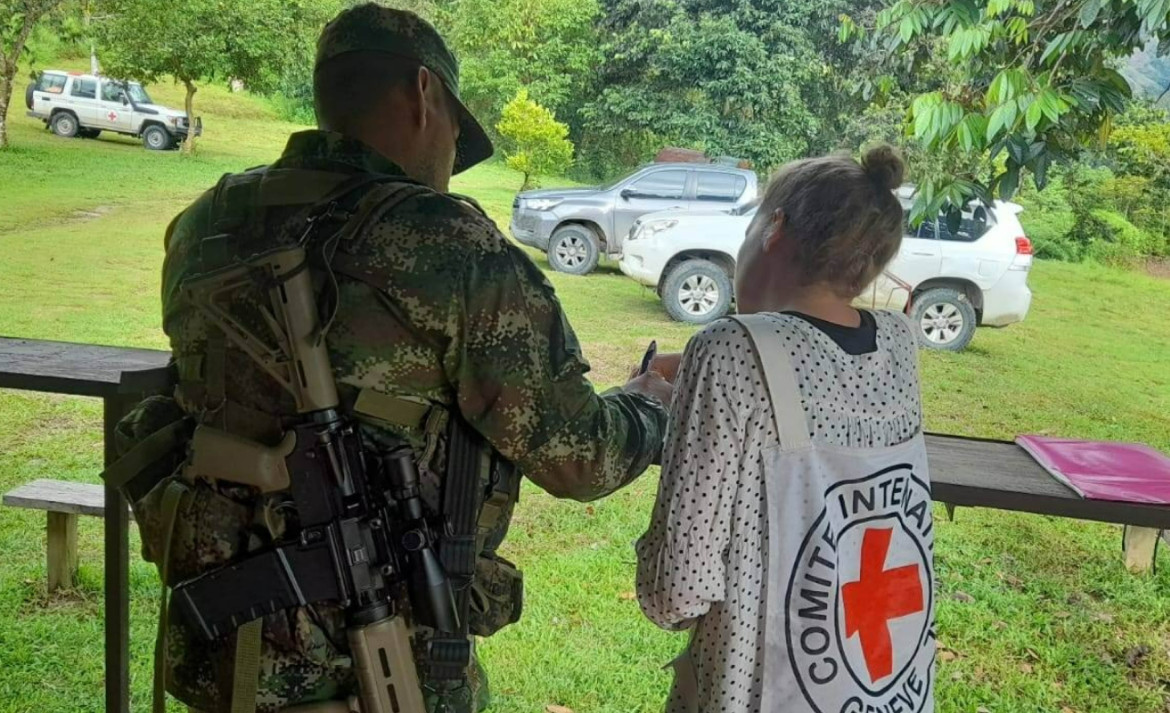 From a humanitarian perspective, we need to make every possible effort to help reunite family members who have been separated by armed conflict or other violence.Nariño. A minor who was being held by the Franco Benavides Front is handed over to the ICRC.ICRC
From a humanitarian perspective, we need to make every possible effort to help reunite family members who have been separated by armed conflict or other violence.Nariño. A minor who was being held by the Franco Benavides Front is handed over to the ICRC.ICRC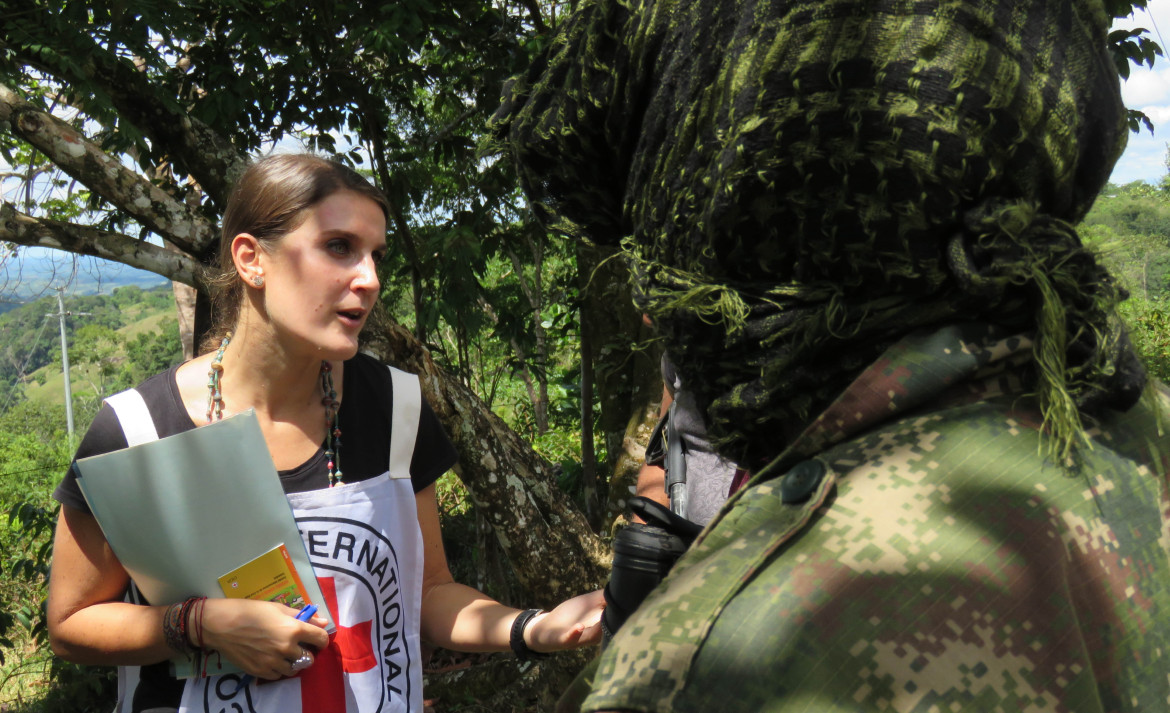 Armed groups must uphold international humanitarian law, which provides particular protections for civilians and individuals no longer taking part in hostilities.Antioquia. A minor who was being held by the Gaitanist Self-Defence Forces of Colombia (AGC) was handed over to the ICRC in November.Ricardo Monsalve / ICRC
Armed groups must uphold international humanitarian law, which provides particular protections for civilians and individuals no longer taking part in hostilities.Antioquia. A minor who was being held by the Gaitanist Self-Defence Forces of Colombia (AGC) was handed over to the ICRC in November.Ricardo Monsalve / ICRC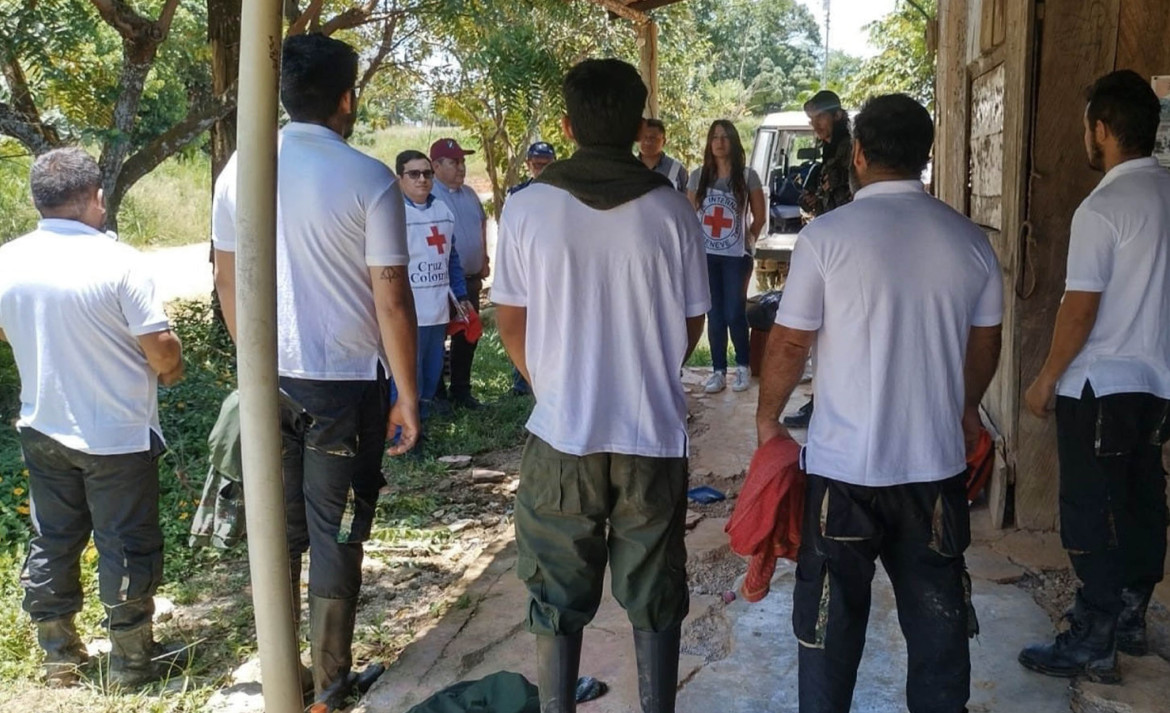 Weapon bearers must respect the lives and safety of those who are not or no longer participating in armed conflicts or other violence.Norte de Santander. Five people were handed over to the ICRC in Catatumbo. They had been held by Frente 33 (formerly part of the FARC-EP and not currently covered by the peace agreement).ICRC
Weapon bearers must respect the lives and safety of those who are not or no longer participating in armed conflicts or other violence.Norte de Santander. Five people were handed over to the ICRC in Catatumbo. They had been held by Frente 33 (formerly part of the FARC-EP and not currently covered by the peace agreement).ICRC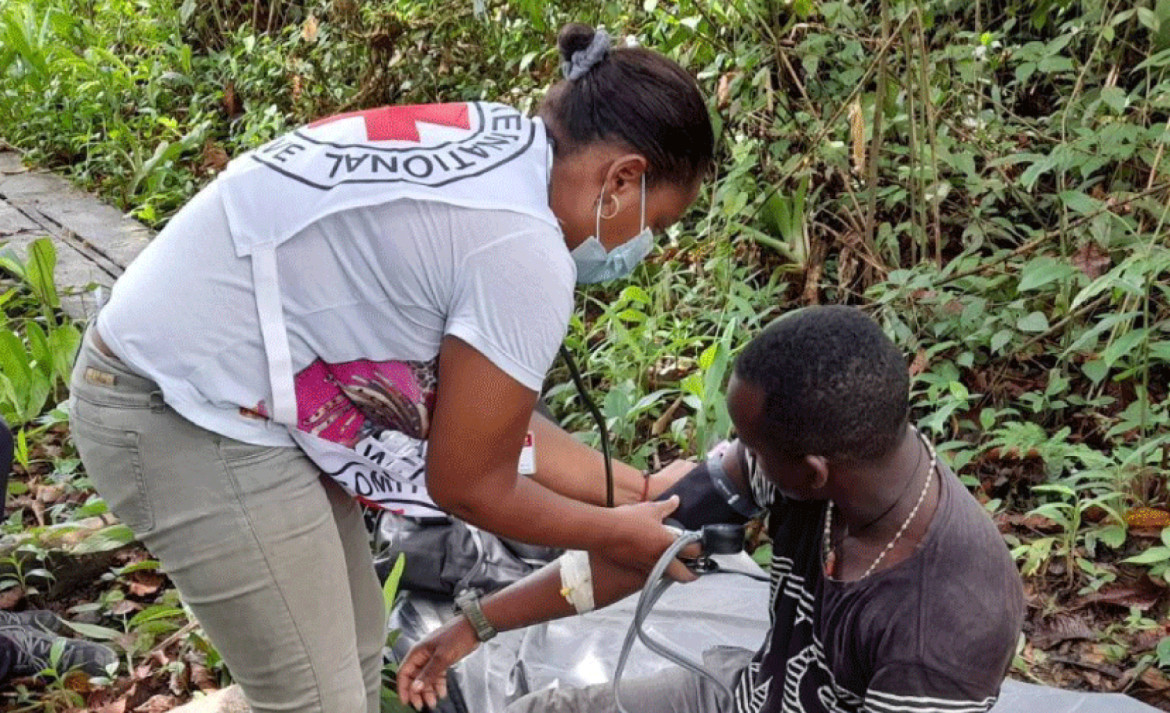 Victims of armed conflict and other violence should receive timely and decent care whether they are in the cities or the countryside.Chocó. A man who had been held by the National Liberation Army (ELN) is handed over to the ICRC and the Catholic Church.ICRC
Victims of armed conflict and other violence should receive timely and decent care whether they are in the cities or the countryside.Chocó. A man who had been held by the National Liberation Army (ELN) is handed over to the ICRC and the Catholic Church.ICRC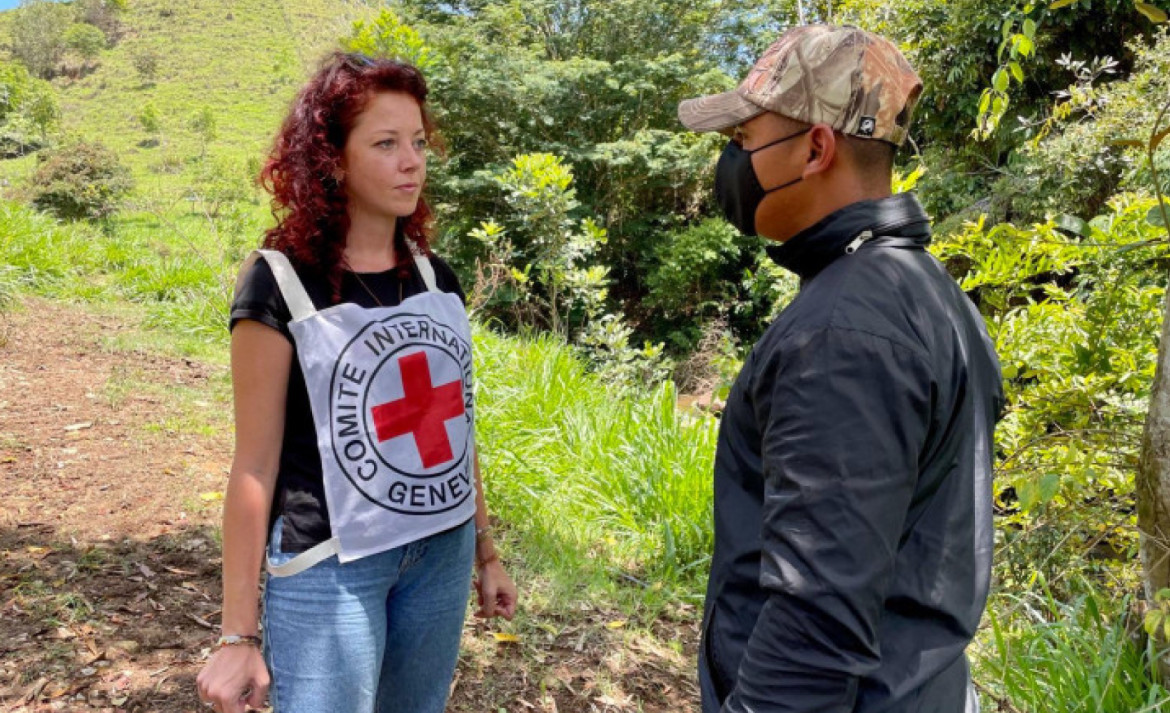 The red cross is a symbol of humanitarian protection.Antioquia. An ICRC delegate talks with one of the three people who had been held by the Gaitanist Self-Defence Forces of Colombia (AGC).ICRC
The red cross is a symbol of humanitarian protection.Antioquia. An ICRC delegate talks with one of the three people who had been held by the Gaitanist Self-Defence Forces of Colombia (AGC).ICRC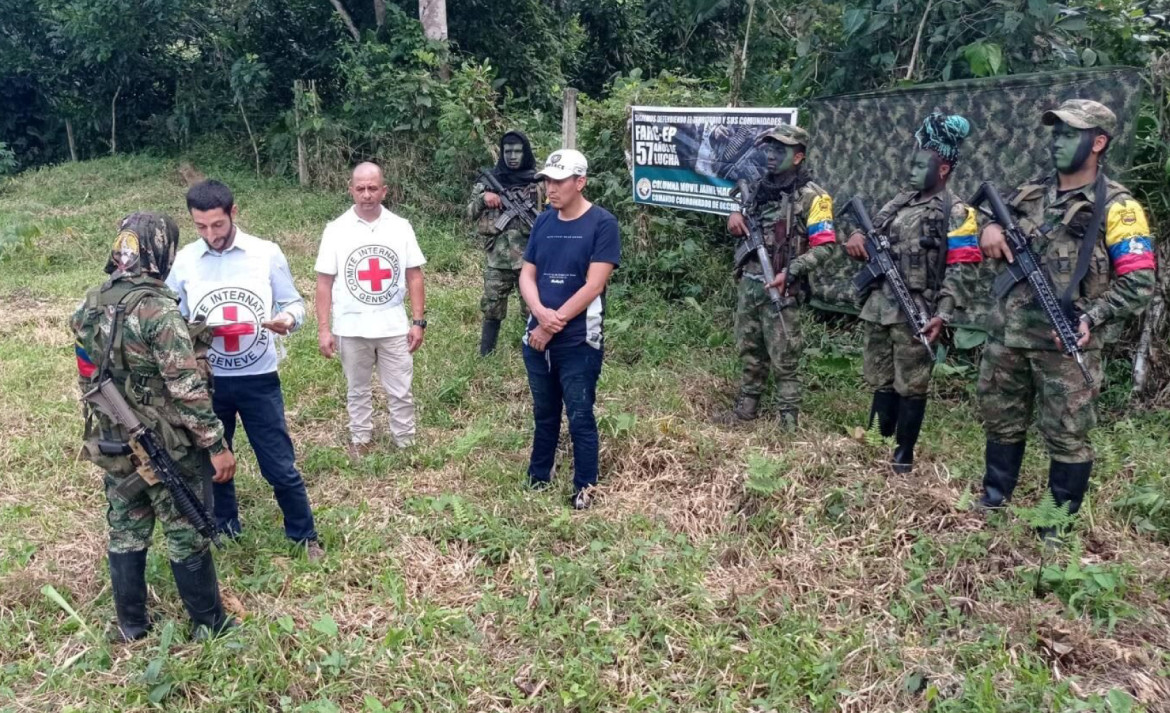 We are neutral: we never take sides in an armed conflict or get involved in political controversies.Valle del Cauca. A patrol officer of the Colombian National Police who had been held by the Jaime Martínez Mobile Column is handed over to the ICRC.Andrés Catano / ICRC
We are neutral: we never take sides in an armed conflict or get involved in political controversies.Valle del Cauca. A patrol officer of the Colombian National Police who had been held by the Jaime Martínez Mobile Column is handed over to the ICRC.Andrés Catano / ICRC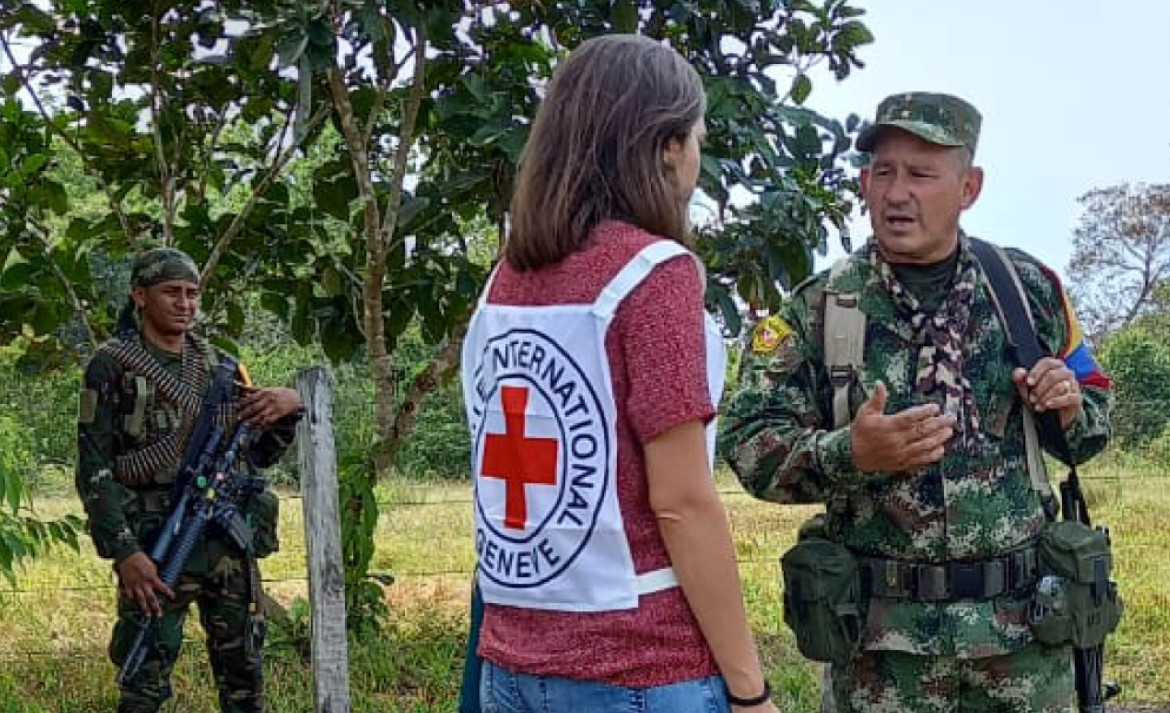 We’re able to go to even the most hard-to-reach areas thanks to our confidential, bilateral dialogue with weapon bearers and people affected by armed conflict and other violence.Arauca. Two people who had been held by the Frente 10 (formerly part of the FARC-EP and not currently covered by the peace agreement) are handed over to the ICRC.ICRC
We’re able to go to even the most hard-to-reach areas thanks to our confidential, bilateral dialogue with weapon bearers and people affected by armed conflict and other violence.Arauca. Two people who had been held by the Frente 10 (formerly part of the FARC-EP and not currently covered by the peace agreement) are handed over to the ICRC.ICRC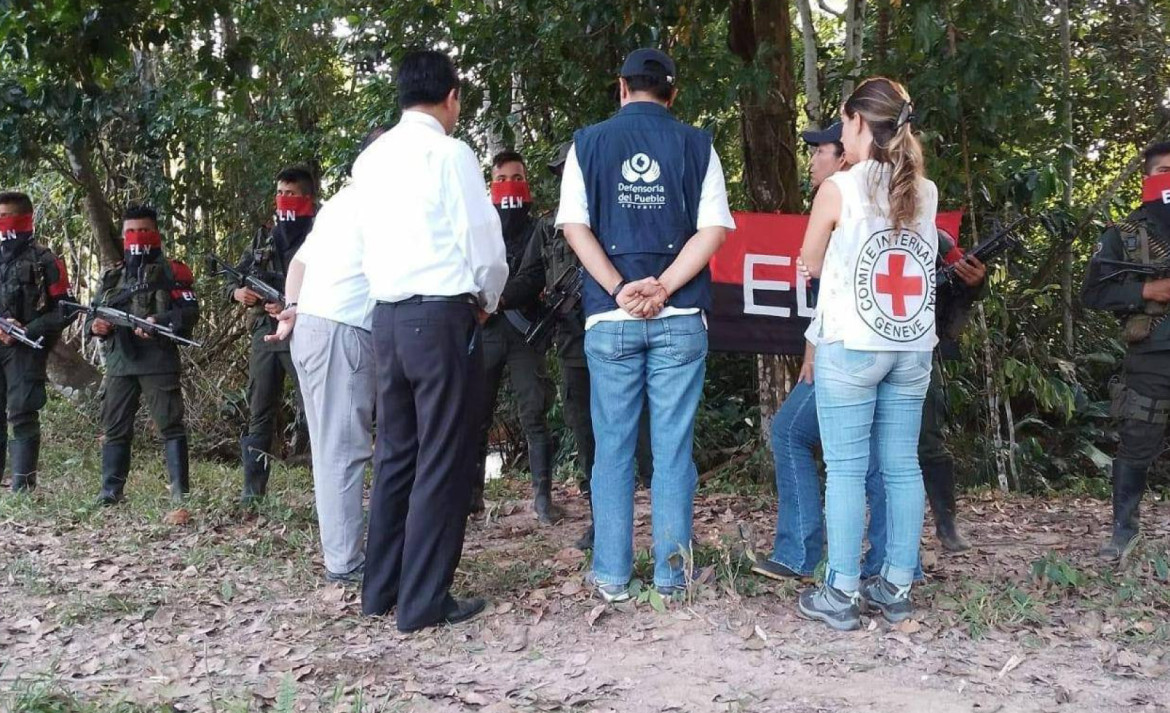 Children, including adolescents, face specific risks in armed conflict and other violence. They are therefore entitled to special protection.Arauca. Two minors who had been held by the National Liberation Army (ELN) are handed over to a humanitarian delegation made up of the ICRC, the ombudsman’s office and the Catholic Church.ICRC
Children, including adolescents, face specific risks in armed conflict and other violence. They are therefore entitled to special protection.Arauca. Two minors who had been held by the National Liberation Army (ELN) are handed over to a humanitarian delegation made up of the ICRC, the ombudsman’s office and the Catholic Church.ICRC
International humanitarian law grants particular protections to children (including adolescents), civilians and people no longer taking part in hostilities, protections that armed groups must also provide. For this reason, we applaud the humanitarian gesture of the armed groups for releasing these individuals to be reunited with their loved ones. We also appreciate the dialogue with weapon bearers and people affected by armed conflict and other violence, which enabled us to reach the most remote and least accessible places in the country, places where no one else can go.
As a humanitarian organization, we do not make public statements about who was released, why they were being held by armed groups or what their living conditions were like.
We request that journalists and others working in the media and other communication channels also refrain from disclosing such information, particularly with regard to minors, in order to allow us to continue carrying out our humanitarian work and to protect the dignity of the people released and their families.
We do discuss these matters in our dialogue with the armed groups. Our dialogue with them, with the authorities and with communities is strictly confidential.
We will continue supporting the communities and individuals affected by armed conflicts and remain ready to carry out other humanitarian operations to mitigate the dramatic consequences of armed conflict and other violence in our role as a neutral intermediary.
Remaining neutral in a conflict does not mean that we are indifferent to the suffering of its victims. On the contrary: not taking sides allows us to enjoy the trust of the parties and therefore go to those places that are worst hit by the violence and relieve human suffering.

